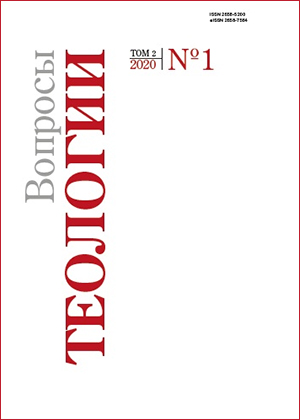Logic of theological debate in the Book of Job: Criticism of Maimonides’ interpretation in the Jewish biblical exegesis in the 14th century
DOI:
https://doi.org/10.21638/spbu28.2020.105Abstract
The article discusses the critical understanding of Maimonides’ interpretation of the Book of Job, representing a theological debate on Divine Providence. Maimonides ascribes certain assessments on this issue to Job and his friends, linking their opinions to some theological or philosophical schools of the 10th–12th centuries, developed in the context of Arabic culture. A number of Jewish exegetes, who were working in a diverse cultural context and were writing in Hebrew, such as Joseph Ibn Kaspi and Gersonides, considered this distribution of opinions an anachronism. Being Maimonidean followers, they nevertheless criticized the distribution of opinions between Job and his friends proposed in The Guide of the Perplexed. The main argument of this criticism was logic. We will discuss the origins of such an approach and analyze some nuances of logical solutions, suggested by Maimonidean followers, juxtaposing them with a range of problems touched upon in The Guide of the Perplexed in regards to the Book of Job. It will be stressed among others, that the interpretation of Gersonides, coming from his statement on the logical completeness of the solution of the question of Divine Providence in the Book of Job, can be justified by the means of modern formal logic.
Keywords:
The Book of Job, Divine Providence, exegesis, Maimonides, The Guide of the Perplexed, Joseph Ibn Kaspi, Gersonides, logic
Downloads
References
References
Downloads
Published
Issue
Section
License
Articles of "Issues of Theology" are open access distributed under the terms of the License Agreement with Saint Petersburg State University, which permits to the authors unrestricted distribution and self-archiving free of charge.




